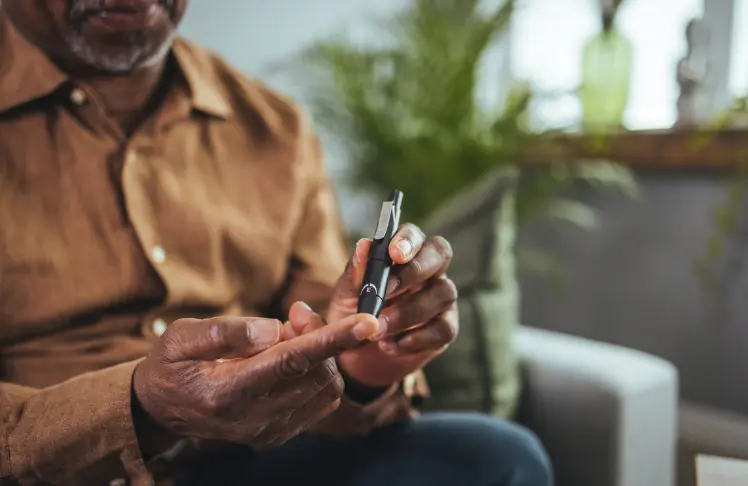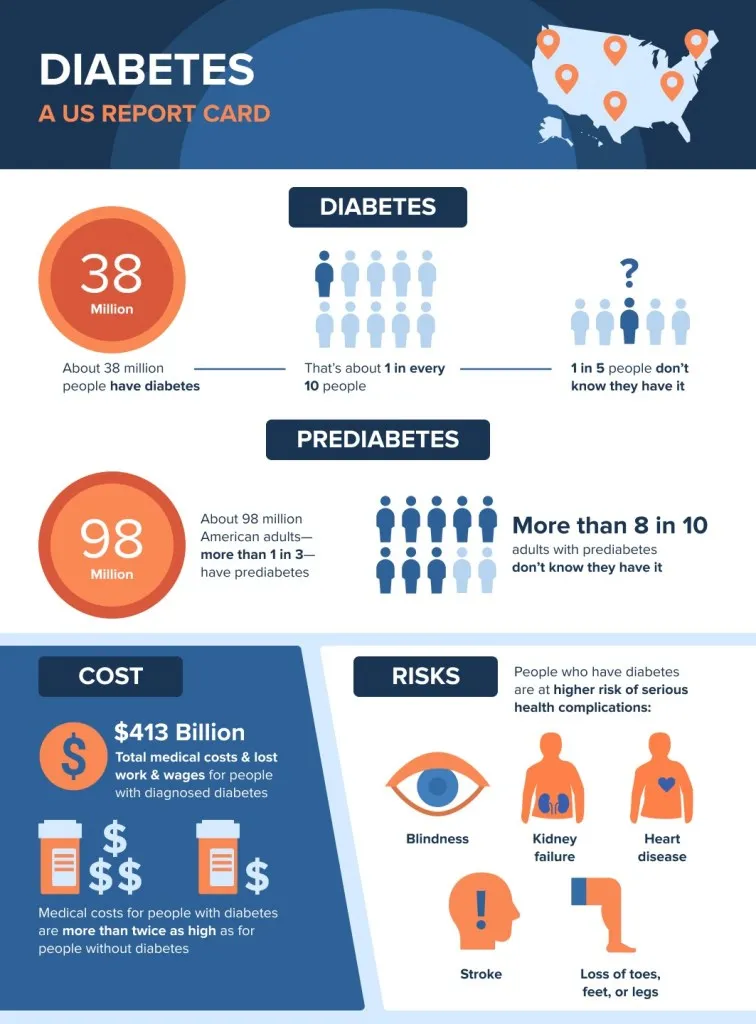
This post was originally published on Afro
By Gene Lambey
Diabetes has been a known disease that has widely affected the Black community — but it is a disease that can be managed.
According to a report from the Center for Diseases Control and Prevention (CDC), diabetes is categorized as a chronic long-lasting condition that affects how the body uses food for energy. Diabetic people cannot produce enough insulin naturally, leaving an excess amount of blood sugar in the bloodstream.
In the data collected from the CDC, there are over 38 million Americans that have been diagnosed with diabetes. One in five Americans are unaware that they have the disease.
“Diabetes can be caused by a combination of genetic, environmental and lifestyle factors,”said Perina V. Gaines, president of the Black Nurses Rock D.C., Maryland and Virginia (DMV) Chapter.
Gaines told the AFRO that in Washington D.C, there are approximately 42,900 adults that have had a diabetic diagnosis based on CDC data. 13.5 percent of diabetic adults in D.C, are Black or African-American.
Type 1 diabetes is primarily an autoimmune response when, “the body’s immune system attacks insulin-producing cells in the pancreas,” Gaines stated, adding that Type 2 diabetes may result from lifestyle factors such as obesity, lack of physical activity and poor diet. Lesser forms of diabetes include gestational, which occurs in pregnancy and monogenic diabetes, caused by mutations in a single gene.
Prediabetes, defined by the Mayo clinic, states how the body’s blood sugar levels are higher than normal, but are not high enough for a person to be diabetic.
“The Black community can confront childhood obesity and its potential link to diabetes through various approaches. These may include promoting access to healthy and affordable foods, increasing opportunities for physical activity, providing education on nutrition and healthy lifestyle choices, and addressing socioeconomic factors that contribute to disparities in healthcare access and resources,” said Gaines.

“Consuming excessive amounts of unhealthy foods high in sugar, saturated fats, and refined carbohydrates can lead to obesity and insulin resistance, increasing the likelihood of developing type 2 diabetes. Regular physical activity helps control weight, improves insulin sensitivity, and reduces the risk of diabetes.”
In speaking on why the Black community is more susceptible to diabetes compared to other ethnic groups, Gaines said it is a “combination of genetic predisposition, socio-economic factors and disparities in healthcare access and quality.” She noted that in some cases genetics could play into “higher rates of insulin resistance and metabolic disorders.”
“Socio-economic factors such as limited access to healthy foods, lower rates of physical activity, and higher levels of stress due to systemic racism and discrimination also play a role,” said Gaines. “Additionally, healthcare disparities, including lack of access to preventive care and diabetes management resources, further exacerbate the risk of diabetes in the Black community.”
When it comes to medications for diabetes, Gaines spoke about medications for lowering glucose levels, blood pressure and cholesterol. She said antiplatelet medication, neuropathy medication and insulin delivery packages are useful.
“Addressing the affordability of these medications and supplies is crucial to ensure that diabetic patients can access the comprehensive care they need to manage their condition effectively and reduce the risk of complications, said Gaines. “The Affordable Care Act’s provision to reduce the price of insulin is a significant step in the right direction, but further efforts may be needed to address the affordability of other essential medications and supplies for diabetic patients.”
The AFRO asked Gaines what are the solutions or steps that need to be taken. She emphasized solutions such as a comprehensive health initiative, nutrition and food access, physical fitness and wellness programs, community engagement and education and health equity and social determinants of health.
The D.C. Collaboration for Equitable Health is a partnership between the American Diabetes Association, American Heart Association, the American Cancer Society and the University of Michigan School of Public Health.
“Through these collaborative efforts and initiatives, the partnership between Black Nurses Rock DMV Chapter, The D.C. Collaboration for Equitable Health, and supporting organizations demonstrates a commitment to addressing diabetes risk factors and promoting health and wellness within the Black community.”
Gene Lambey is a resident of Washington D.C. He is writing for the community.















